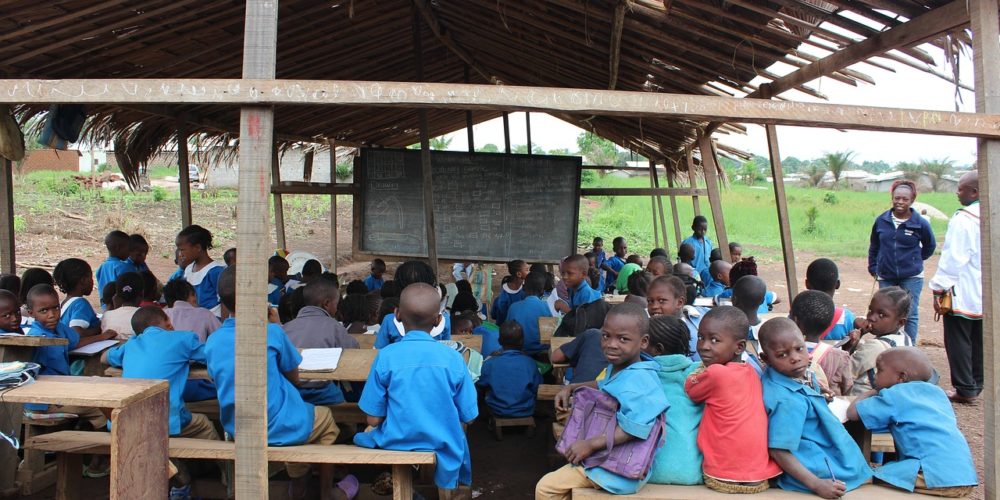The invisible issue haunting our elections

And so Kenyans trooped to vote again in a presidential election for the second time in three months. Or not. This election, held against the backdrop of a deeply divided country and the withdrawal of a key protagonist, ultimately yielded a turnout that was a record low.
Because so many voting stations stayed empty for long periods on voting day, Kenyans started paying attention to an issue that tends to stay invisible: the state of the polling stations themselves. In Kenya, public primary schools are the venues commonly used for many elections. And this time, without long queues of voters to look at, television viewers found themselves looking at the state of the schools themselves.
Several watchful Kenyans documented the pictures and pointed out on social media: our schools are generally in a pathetic state. This is a country that touts the fact that it has had ‘free’ primary education for more than a decade, and so it is fair to ask: is this what we have to show for it? Billions upon billions have purportedly been spent on education in Kenya, so why were there so many schools without a solid floor, windows, or even proper walls and roofs?
We claim to be going digital with education, but why have so many schools not even won the analogue race yet, smack in the 21st century?
Watching the cameras follow bigwigs coming to vote reveals all. They arrive in convoys of fancy vehicles with a retinue of aides and bodyguards in tow. They sometimes make a show of humility by queueing up to vote like ordinary citizens; sometimes they forget and stride to the front of the queue. They smile for the cameras and say a few sweet nothings about democracy in an interview. And then they are gone, never to return to a schoolroom until another election forces them to.
The problem in a word: priorities. The politicos feed only their own egos and engage in never-ending battles for personal supremacy; the media seek only the well-known face and the memorable soundbite and the hilarious meme; and the people follow the political soap opera as though their own lives depend on it.
Those are our priorities, and that explains the state we are in: easy to divide and distract; ignorant of the true drivers of economic wellbeing; and perpetually spinning our wheels in the mud. We have the skyscrapers and the smartphones, the hotels and the hubris, the billionaires and the bombast; but we struggle with simple basics: properly built and equipped classrooms; and a critical mass of properly engaged teachers.
This column has been shouting it since 2003: no society develops without prioritizing education. I have written these messages many times over many years: development is about mind, not matter; education is more than just herding millions into poor schools and clapping for ourselves; the cornerstone of education is the teacher; we must instil values and ethics as we teach; and the money that goes towards the uplift of the children of the poor must be protected at all costs.
By now we could have created an entire generation armed with marketable skills and discernment, freed from primitive superstition, ready to go digital and compete head-to-head in 21C. Instead we made superficial investments in education; we stood by while billions were diverted from classrooms; and we turned our national relationship with the teaching profession into one of constant fights over money and strikes rather than joint accountability over quality.
And so, here we are in 2017: still fixated on tribe; still at the mercy of the egos of a few; still waiting for human messiahs; still unable to unite under a common purpose as a nation. You reap what you sow, and those dusty floors and crumbling walls are what we deserve.
Those children don’t deserve them, though; they deserve better from their parents and from the leaders those parents choose to elect. Even as we find our way out of our latest electoral imbroglio, let us not take our eyes off the long-term answer: a society that is both equipped to compete and at peace with itself. And that begins right there in those crumbling classrooms that witnessed the polling. The voting won’t work until the classrooms do.
(Sunday Nation, 5 November 2017)

Buy Sunny Bindra's new book
The X in CX
here »
Popular Posts
- Make this your year of being boringJanuary 4, 2026
- Can we please stop with the corporate jargon?January 11, 2026
- The man who passed by one markJanuary 18, 2026
- My books of the yearDecember 14, 2025
- Confessions of an explaining personDecember 7, 2025















